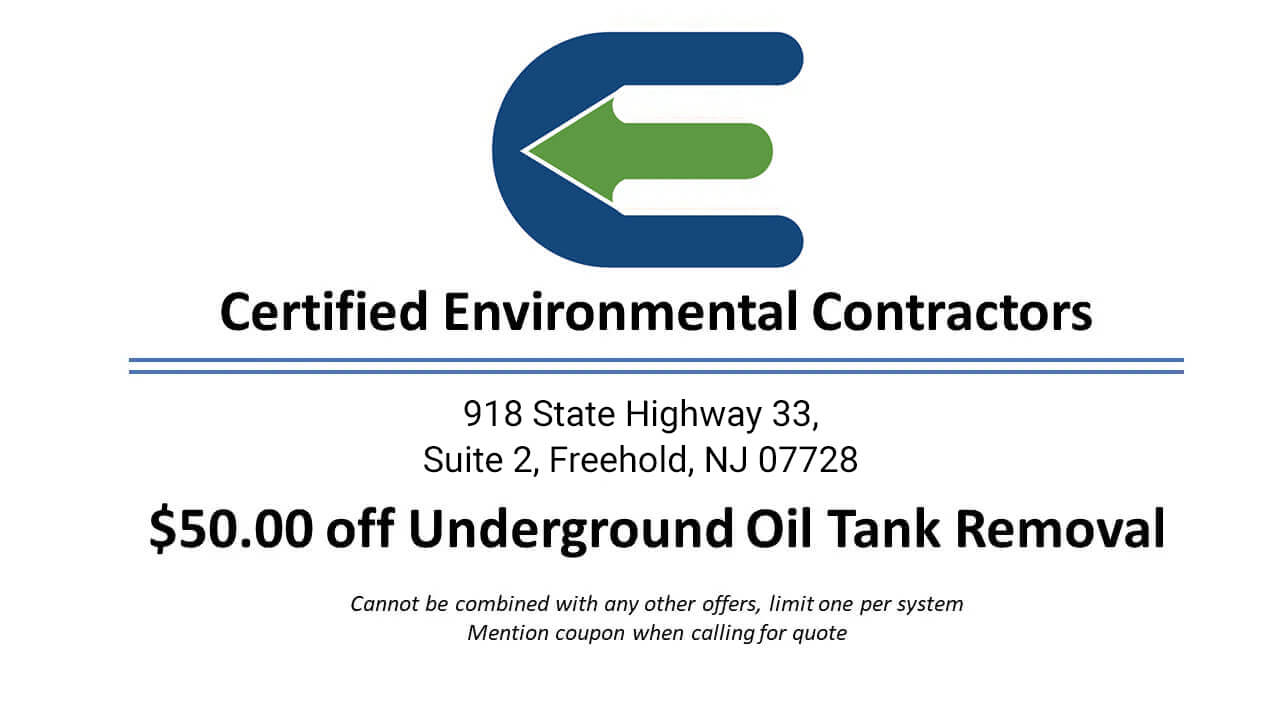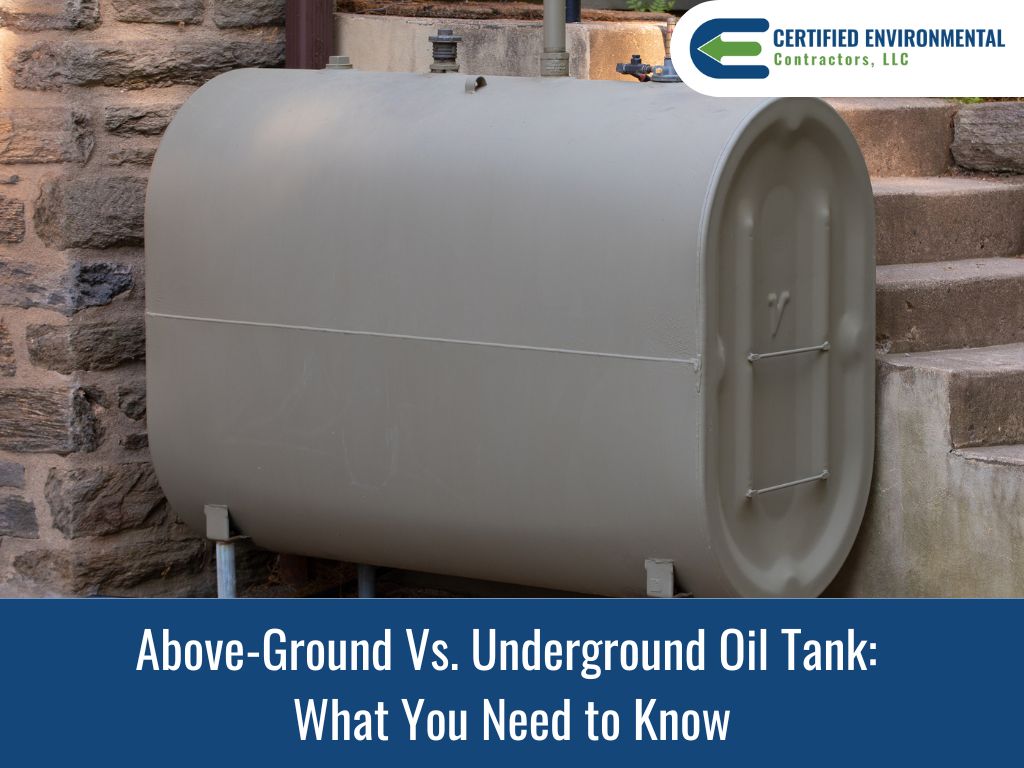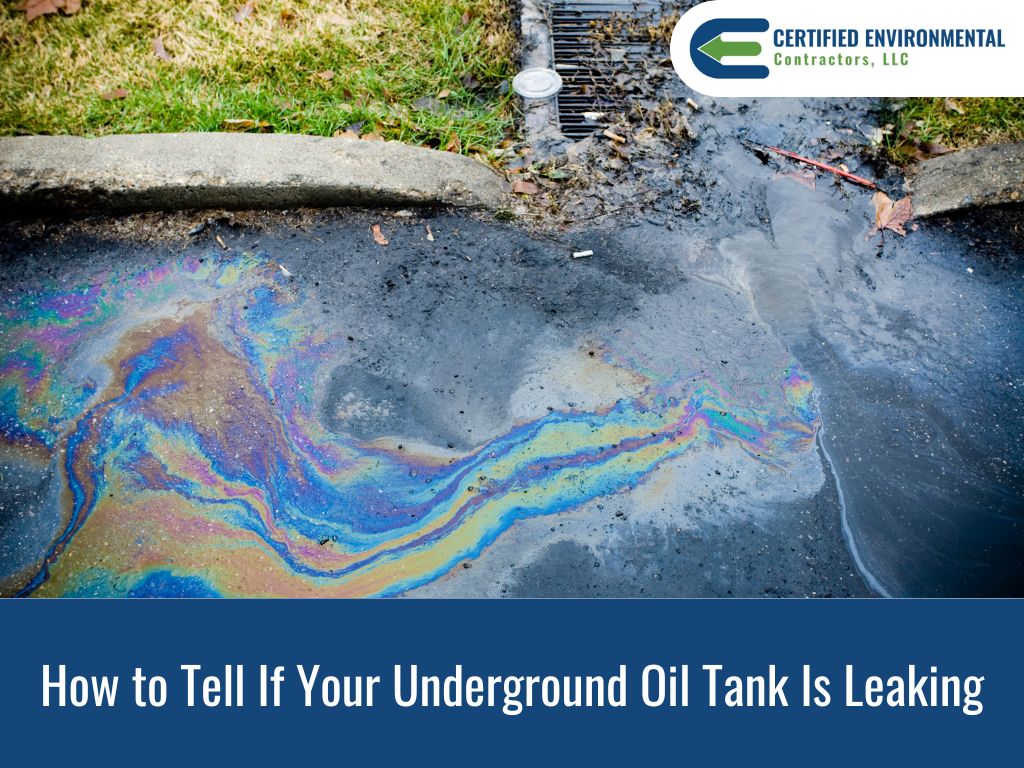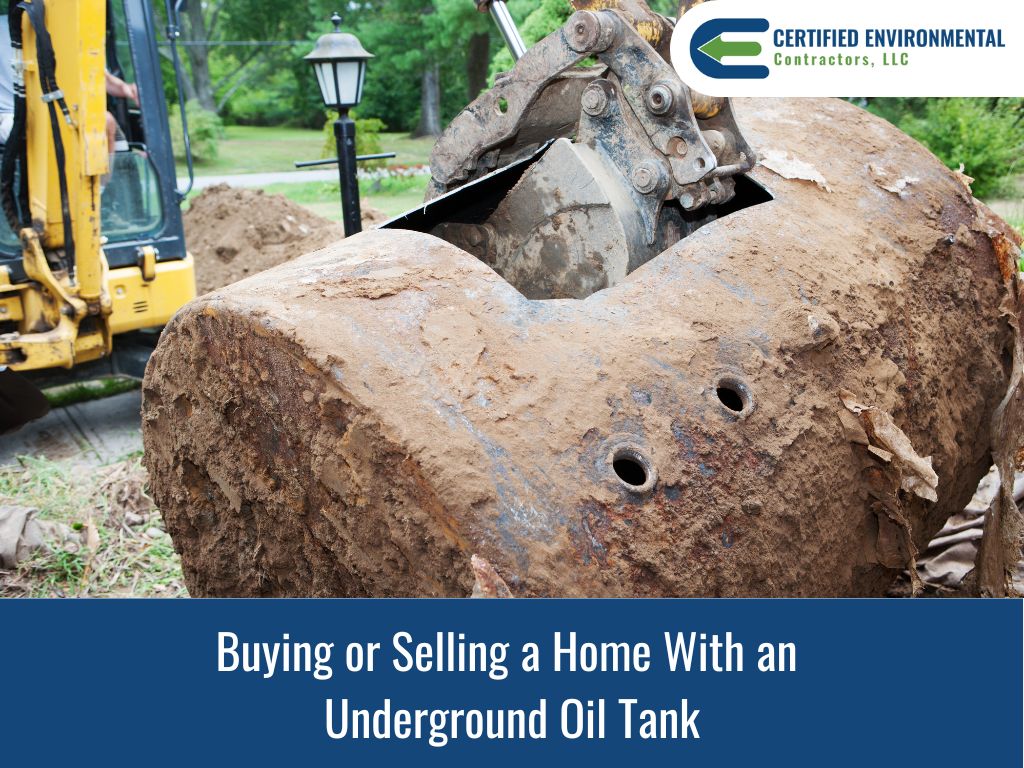Oil Tank Removal in Somerset County, NJ
Certified Environmental will come to your property in Somerset County, NJ and surrounding towns such as Somerville, Bridgewater Township and Hillsborough Township to provide a free estimate to remove underground oil tanks and install an above ground oil tank.
Underground Oil Tank Removal
We adhere to the strictest environmental codes and regulations of towns and cities like these and every other Somerset County municipality.
The Oil Tank Removal Process
The best time to remove your tank is when you don’t have to. We will come to your home, determine the best course of action based on your preferences, provide a written quote, apply for the permit, and perform the complete tank removal and backfilling in one day.
We Will Beat Any Competitors Written Estimate!
Here are a few of our oil tank removal services available in Somerset County, NJ and its towns like Franklin Township, Branchburg Township and North Plainfield:
Don't Look Any Further, Choose Certified Environmental
Frequently Asked Questions
To safely remove an oil tank, the site is evaluated for the tank’s location and any other factors which may impact the tank’s removal. Once the evaluation is performed, a permit must be applied for and obtained from the local municipality. On the day of the removal, our technicians will arrive with an excavator, excavate the tank, stockpile the soil, cut a hole in the top of the tank (if not already done so), properly remove and store any contents remaining in the tank, remove the tank, and then backfill the excavation with certified clean fill and the previously saved soil.
Yes, we also like to go inside the house if possible to see the basement first, then we electronically scan the exterior of the house with a specialized metal detector. We then provide a written report of findings.
There is currently no regulation prohibiting anyone from selling a home with an underground oil tank in NJ. The fact of the matter is that homes with an underground tank are less likely to sell as quickly as those with an above ground oil tank or gas. Also, attorneys will always talk about the unknown liability of a house with an underground oil tank.
We do soil sampling, which looks at the soil below the tank sides. The soil is collected and then delivered to an NJDEP certified laboratory for analysis. We then provide a written report of findings. Since vacuum testing is normally done when the tanks are going to be left in service, this is not the most advisable method to determine impact to the soil and is generally used at gasoline stations.
While it is within the regulations to abandon an underground tank in place, it is also undesirable to purchase a house with that tank in the ground. The real solution would be to remove the tank – short of that, soil sampling below and around the tank would yield important information. Once again, remember what you are going through now will come around again when the house is ready for sale.
Depending on the situation, we have done the work for both non-leaking and leaking tanks and have had our invoice paid at closing on the HUD. We can apply to the leaking tank fund for reimbursement for a leaker. The process takes five years at the present time, but they will pay.
It has been our experience after removing hundreds of underground tanks that about 20% of all the tanks we remove are leakers. Of that 20% number, less than 2% have been extraordinarily expensive projects (over 100K).
Yes, if they are staying with oil heat – if they are planning to switch to gas, you should look at the ProGuard charges so you understand. There is a $500 service fee to remove the tank and a $2500 deductible fee. Also, you must use oil for 12 more months after the underground tank is removed.
The DEP wants to know that there is nothing remaining in the soil and/or water above the state criteria (published). Samples are collected and analyzed at a certified laboratory. The results are compiled into a report and that is sent to NJDEP asking for the No Further Action letter. The entire process from tank removal to the No Further Action letter takes about 2-3 months.





